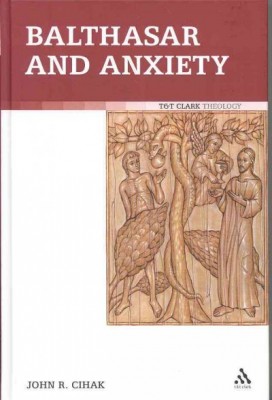| Balthasar and Anxiety Contributor(s): Cihak, John R. (Author) |
|
 |
ISBN: 0567034070 ISBN-13: 9780567034076 Publisher: T&T Clark OUR PRICE: $217.80 Product Type: Hardcover - Other Formats Published: June 2009 Annotation: This study offers a theological response to the problem of anxiety from the point of view of Hans Urs von Balthasar. |
| Additional Information |
| BISAC Categories: - Religion | Theology - Religion | Christianity - Catholic - Religion | Psychology Of Religion |
| Dewey: 230 |
| LCCN: 2009280160 |
| Series: T & T Clark Theology |
| Physical Information: 1.1" H x 6.2" W x 9.3" (1.20 lbs) 304 pages |
| Themes: - Religious Orientation - Catholic - Religious Orientation - Christian |
| Descriptions, Reviews, Etc. |
| Publisher Description: This study offers a theological response to the problem of anxiety from the point of view of Hans Urs von Balthasar. It is a systematic presentation, analysis and development of Balthasar's original theology of anxiety found in his only work on the subject, Der Christ und die Angst. The study takes a thematic approach based upon the four types of analysis found in Der Christ und die Angst: phenomenological, anthropological, theological and ecclesial. These four approaches to the topic correspond to the phenomenon, origins, redemption and transformation of anxiety. |